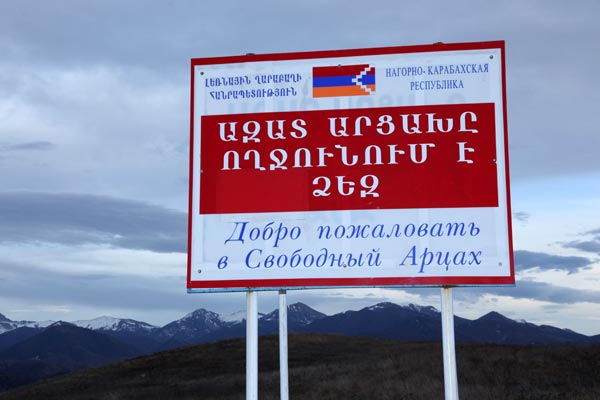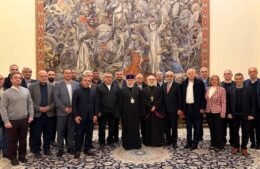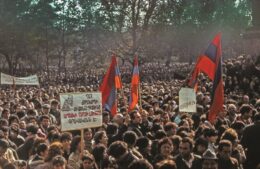Mediator activity on amid speculation over plans for Russia-led peacekeeping mission in conflict zone
- (0)
Mediator activity on amid speculation over plans for Russia-led peacekeeping mission in conflict zone –

The cochairmen of the Organization for Security and Cooperation in Europe’s (OSCE) Minsk Group intend to visit the Nagorno-Karabakh conflict region again in early November. According to media reports, they intend to discuss the issue of organizing a meeting of the presidents of Armenia and Azerbaijan.
Almost two years have passed since the last meeting of Serzh Sargsyan and Ilham Aliyev and it is largely attributed to elections held in both Armenia and Azerbaijan during this period. Both leaders have been reelected presidents in their countries, thus getting the mandate for the settlement of the Karabakh problem.
The presidents may be “ready”, but is there agreement between the three co-chairs of the OSCE Minsk Group – the United States, France and Russia – about the principles of settlement? All the three countries have long been talking about the unacceptability of the status quo in the conflict zone, but each of the countries does not allow the others to change the status quo in their favor. Three years ago France and the United States, in fact, scuttled the intention of Russia to change the status quo. Now Moscow is apparently making another attempt to change it. The question is how far its attempt is agreed with Paris and Washington this time around.
The policy for the establishment of a Eurasian Union that has been proclaimed an imperative of Russian policies by President Vladimir Putin covers the entire post-Soviet space, including the so-called unrecognized republics. At a recent press conference in Minsk the president of one of the member countries of the Customs Union, Belarus, Alexander Lukashenko stated that a format for accession to the Customs Union could be found also for unrecognized entities, including Nagorno-Karabakh.
Nagorno-Karabakh Republic President Bako Sahakyan did not deny such a possibility either, saying that if the NKR receives an invitation to join the Customs Union, they will discuss this offer.
It is noteworthy that Azerbaijan has in no way responded to the decision of Armenia to join the Customs Union and the probability of Karabakh’s entry as well. Some experts argue that this may indicate the presence of agreements between Moscow and Baku. And these arrangements may concern the location of Collective Security Treaty Organization (CSTO, a Russia-led defense pact of six former Soviet nations) peacekeeping forces. If Moscow deploys the force not along the current NKR border, but a little deeper inside from the first defense line, Azerbaijan may get the coveted couple of districts.
Apparently, Minsk Group U.S. co-chairman James Warlick’s unexpected visit to Baku before the trip of all mediators was connected with these alleged intentions. In Baku, Warlick met with President Aliyev as well as the Azeri foreign minister, and from the capital of Azerbaijan he went to London “to discuss the Karabakh subject”. Perhaps Washington does not like the separate agreements between Russia on one side and Armenia and Azerbaijan on the other.
Some military experts close to government circles in Armenia say that Armenia is not against the deployment of CSTO forces in Karabakh. Recently, CSTO Secretary General Nikolay Bordyuzha stated that the CSTO peacekeeping units have already been created and they have filed an application with the United Nations for a mandate to participate in peacekeeping operations. To the question whether Karabakh could become the place for the first peacekeeping mission of CSTO forces, Bordyuzha said that they do not set such a task, but if the presidents of Armenia and Azerbaijan agree…
By Nayra Hayrumyan
ArmeniaNow


















